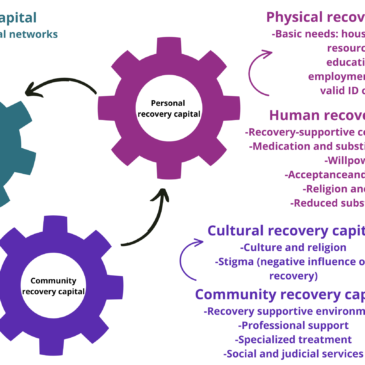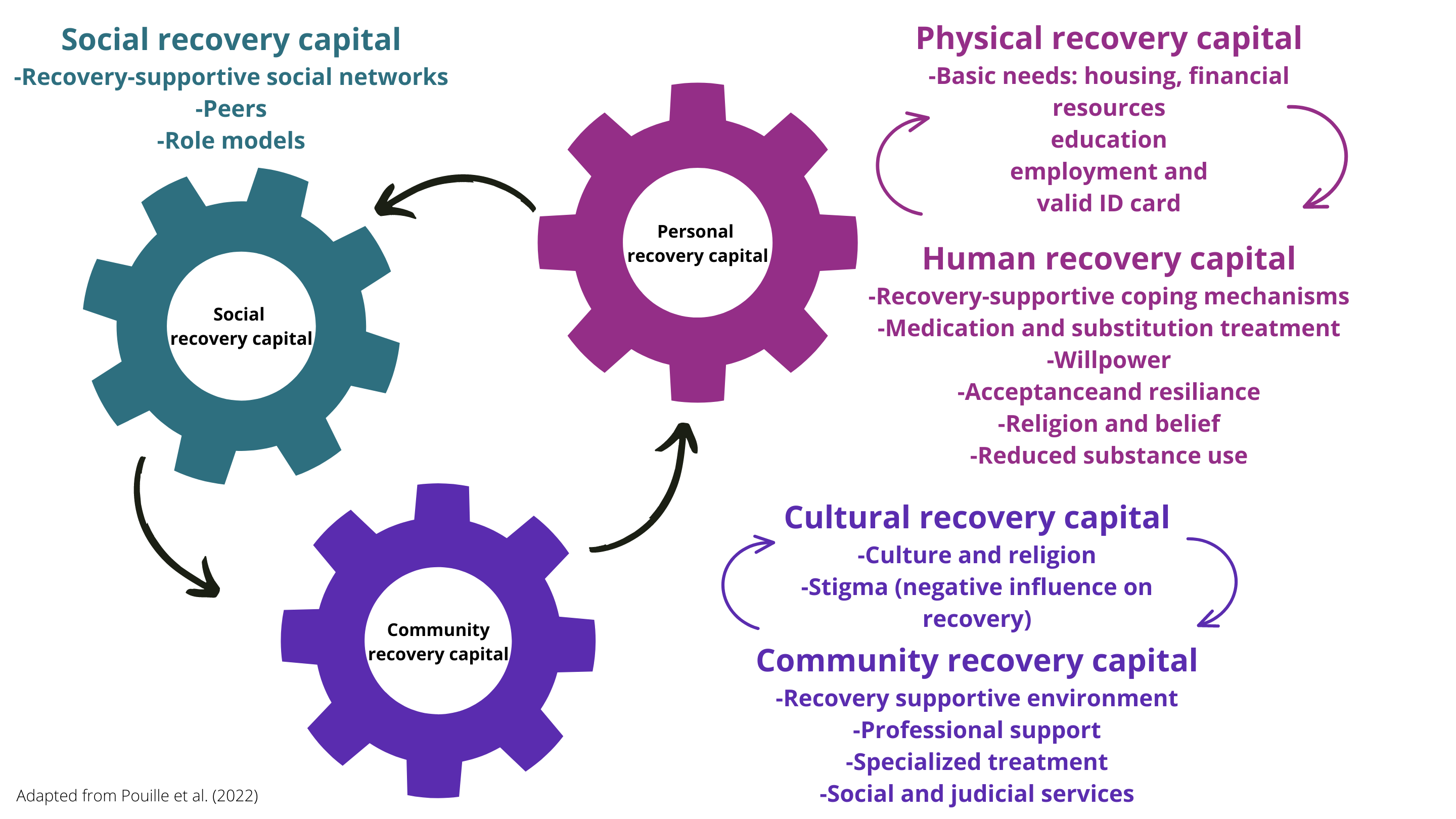People who migrated to another country where they have minority status (or whose parents/grandparents did so) are at an increased risk for substance use due in part to stressors associated with minority status, including language barriers, unemployment, and low socioeconomic status. Studies have explored the impact of substance use among migrants and ethnic minorities (MEM); however, little is known about their recovery process. This week, STASH reviews a study by Aline Pouille and colleagues that examined MEM recovery capital at the personal, social, and community levels, along with barriers to recovery.
What was the research question?
How does recovery capital support/hinder recovery for MEM, and how has their MEM status impacted their recovery journey?
What did the researchers do?
The authors used purposive sampling to recruit 34 MEM participants living in Flanders, Belgium who were in recovery for substance misuse. Because this population can be seldom heard, the authors visited recovery sites and enlisted the help of people who had relationships with potential participants (e.g., service providers) to assist in the recruitment process. The authors then conducted qualitative interviews, focusing on four core inquiries: (1) substance use patterns, (2) their recovery process, (3) factors that promoted/hindered recovery, and (4) the impact that having a MEM background had on the recovery process. The researchers analyzed participants’ responses using Directed Qualitative Content Analysis (QCA), coding responses into three levels of recovery capital while also analyzing subthemes.
What did they find?
Participants identified various recovery resources that impacted their recovery process. The authors divided these resources into three recovery capital levels: personal, social, and community. After further analysis, they divided personal and community levels into subthemes, physical/human and cultural/community, respectively (see Figure). Barriers to recovery within each category were rooted in stigma and discrimination towards MEM, partially as a result of coming from a culture that highly stigmatizes substance misuse and mental health struggles, which can result in isolation and societal stigma due to migration status, skin color, communication barriers, and cultural differences. MEM may experience discrimination as a result of these stigmas, limiting their access to recovery resources and their ability to grow within their personal, social, and community recovery capital.
Figure. Interconnectedness of the three levels of recovery capital (i.e., personal, social, and community) along with subthemes (i.e., physical, human, and cultural) and examples at each level. Adapted from Pouille et al. (2022). Click image to enlarge.
Why do these findings matter?
These findings suggest that migrants and ethnic minorities will have the best chance of sustained recovery when recovery resources influence multiple areas of their lives. For example, religion was identified as a personal recovery resource. Church, synagogue, or mosque services can be helpful because they provide not only spiritual and cultural sustenance but also social connection and sober activities. This finding illustrates that the recovery process is complex and should not focus solely on personal growth. Instead it should also emphasize the responsibility of society to decrease barriers and implement recovery resources that keep in mind cultural, stigma, migration, and trauma related factors experienced by MEM.
Every study has limitations. What are the limitations in this study?
This study’s results could have been impacted by researcher selection bias and participant response bias. The sample only included four women; therefore, the researchers were unable to examine possible gender differences. Lastly, interviews were conducted in Dutch, English, and French. Consequently, MEM that did not speak those languages could not participate.
For more information:
If you are worried that you or someone you know is experiencing addiction, the SAMHSA National Helpline is a free treatment and information service available 24/7. For more details about addiction, please visit our Addiction Resources page.
— Nakita Sconsoni, MSW
What do you think? Please use the comment link below to provide feedback on this article.





